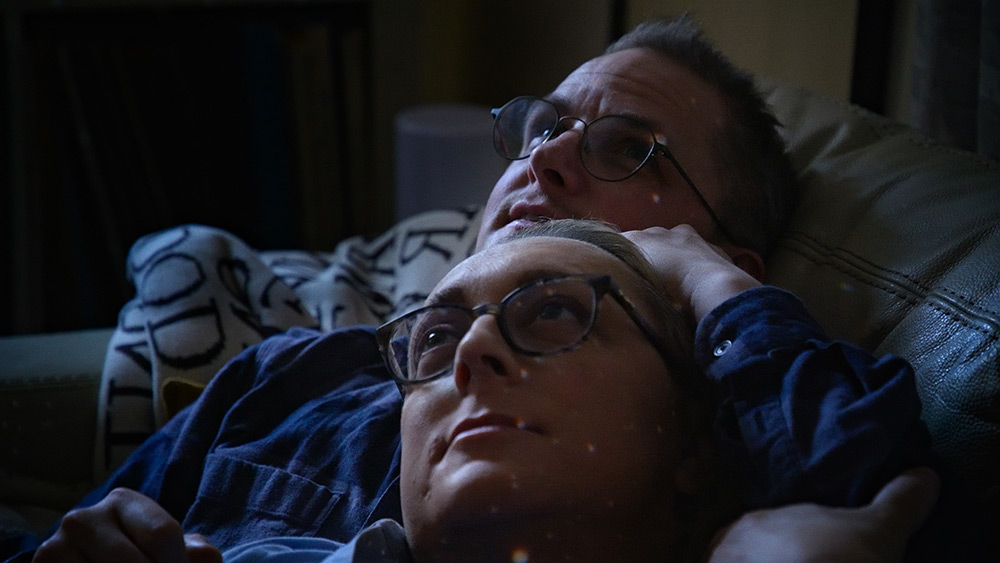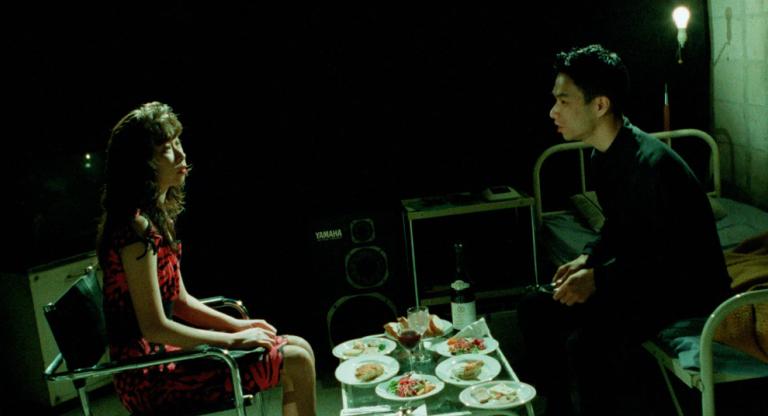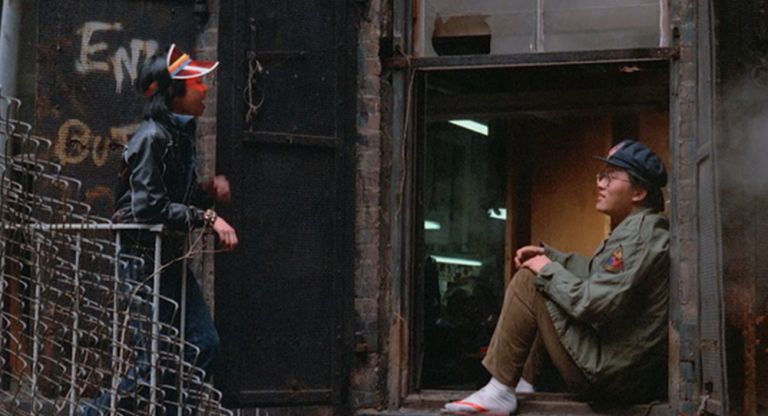Religion’s ambiguous structuring impact on our lives is a thematic throughline in Matylda Kawka’s debut documentary feature, My Sunnyside, which had its US premiere at DOC NYC this month. In a cold open, Jo Schneider and Allie Brashears exchange vows under a huppah; the groom wears a suit and a yarmulke and the bride a white wedding dress straight out of Bridezillas. So far so boilerplate. But what sets this ceremony apart from your typical, if rather well-appointed, Jewish wedding—indeed, from Jo’s first wedding two decades prior—is the long and complicated gender journey that brought our protagonists here.
Jo and Allie, both Gen-Xers from conservative backgrounds, transitioned in adulthood, met in Queens, and settled down together with Jo’s three children from previous relationships. Kawka, a Polish expatriate in New York, befriended the couple and documented their evolving relationship over a seven-year production phase, then spent two years condensing the overwhelming mass of material into a deceptively simple, mostly linear 90-minute feature. Originally planning to produce a purely observational documentary in the Polish School of Documentary tradition of Krystyna Gryczełowska and Irena Kamieńska, Kawka ended up incorporating archival material, self-filmed video-diary segments, talking-head interviews, and even drone footage of the picturesque gardens in Jo and Allie’s neighborhood, which gives the film its title.
After a sold-out screening at IFC Center, I asked Kawka about the deeper significance of Sunnyside Gardens, a planned community inspired by Ebenezer Howard’s “garden city” principles and built in the 1920s with input from landscape architect Marjorie Sewell Cautley and urbanist Lewis Mumford. “The vibe there is very specific,” she said. “The gardens seem to impact people very positively.” Indeed, the verdant surroundings of Jo and Allie’s two-story brick building provide a bucolic setting for their many walks, which give them and their kids a meditative space for processing life’s challenges.
Sunnyside is one of the chosen communities that gives our protagonists a sense of belonging. Another is the world of STEM, in which Allie, as a Professor of Natural Sciences at LaGuardia Community College, is deeply immersed. Dotted among the more personal accounts of Jo’s physical transformation into a powerlifter and Allie’s vocal feminization lessons are sequences of Allie’s lectures on mammalian sexual dimorphism and intersex physiology. Seeing all these engaged undergrads at an institution that primarily serves low-income, recent immigrant, and historically underrepresented students offers a glimmer of hope in a narrative that arrives—unintentionally—in a politically fraught time for the trans community.
Jo’s religion, while providing “comforting rites,” has clearly also functioned as a prison of sorts. Having been raised by a Messianic Jewish pastor, Jo married young and moved to Israel. (His divorce is still not fully processed, and he jokes at one point that, in the eyes of the Israeli government, his soon-to-be-ex-husband is now inadvertently in a gay marriage.) Why does he choose to propagate the traditions of a religious system that clearly caused him a lot of pain? Of course, this is not the only seeming contradiction that undergirds their lives; doesn’t transgender identity itself involve a non-traditional embrace of certain traditional precepts, if more behavioral than theological?
This ambivalence may partly explain the film’s appeal to audiences in Poland, where the tug-of-war between the forces of progress and reaction has long colored the cultural landscape. My Sunnyside received funding from Telewizja Polska, Poland’s government-run public television network. (Kawka is not the only expat European filmmaker who relies on funds from back home; the public funding situation in the States is so legendarily dire that among Kawka’s US-based colleagues it’s accepted as fact that, in her words, “It’s easier to get into Harvard than to get any kind of grant.”) This would not have been possible under the right-wing Law and Justice government (2015–2023), but when the more liberal Civic Coalition government took over the broadcaster and restructured its programming priorities, this US-centered story of a trans couple suddenly became marketable. Now, the film is due to have its Polish television premiere sometime in the next two months, accompanied by a roundtable discussion of its themes. Who knows, maybe, on this side of the Atlantic, PBS will one day enjoy generous budgets from boosted corporate and capital gains taxes. A girl can dream…
My Sunnyside screened on November 15 and 19 as part of DOC NYC and is now available to stream until November 30.



